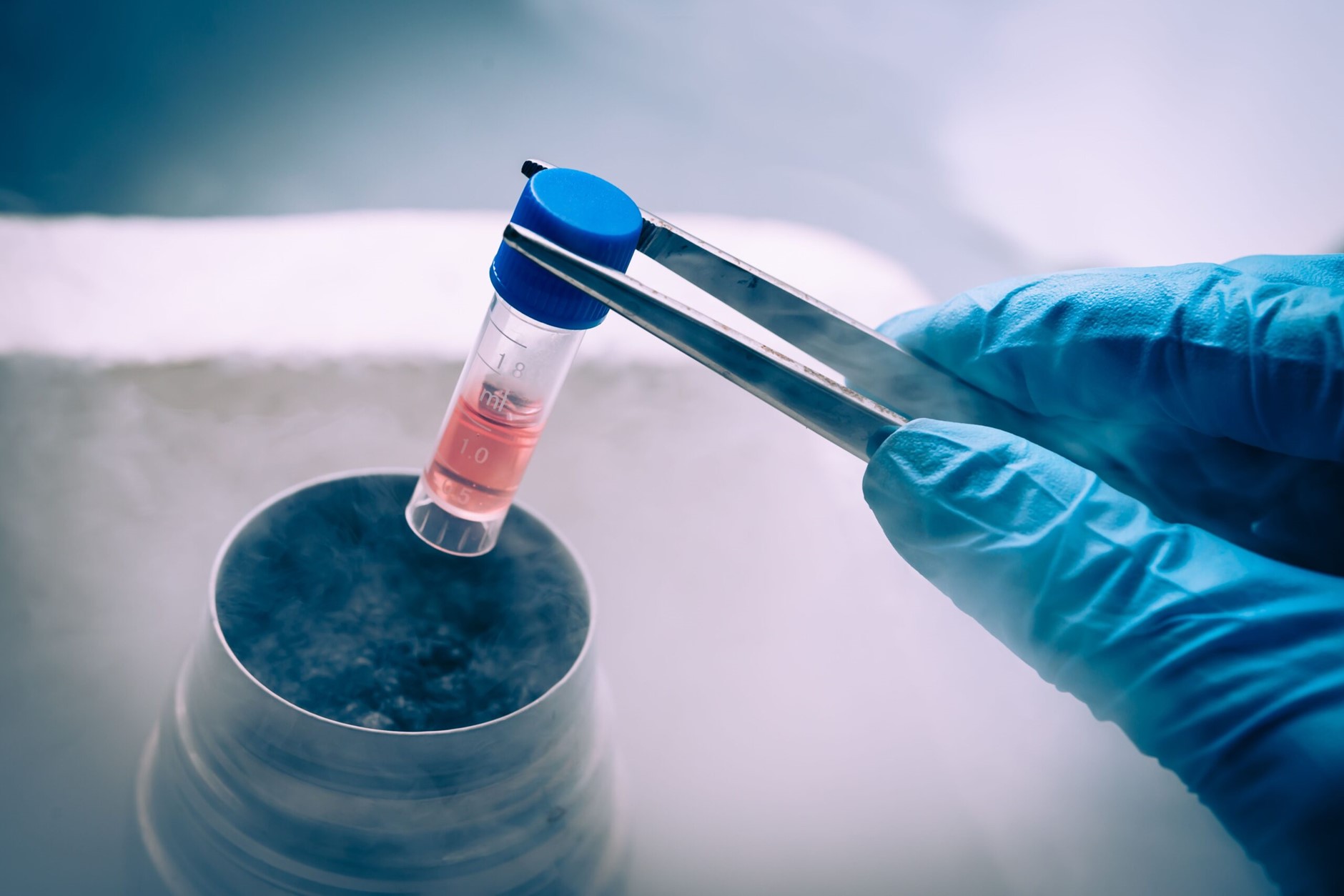Is male infertility common?
Infertility is a very common problem. One in six couples trying to conceive is affected by infertility. A male factor plays a significant or contributing role in at least half of all cases. Infertility affects approximately 10% of males trying to conceive in the United States.
Is it difficult to conceive?
No. Conception is a complex process that depends on many factors.
- Healthy sperm and healthy eggs being released is a pre-requisite .
- Fallopian tubes should be open to allow the sperm to reach the egg
- The ability of the sperm to fertilize an egg upon meeting.
- The potential for the fertilized egg (embryo), to be implanted in the female uterus.
- Good embryo quality and uterine environment
For a pregnancy to go full term, it is essential that the embryo is healthy and the hormonal environment of the female is suitable for its development. Infertility can occur if any one or more of these factors are compromised.
Which males are most likely to experience infertility?
Infertility is more common in males If:
- One is overweight or obese.
- Age is over 40
- There is history of exposure to radiation
- Exposure to environmental toxins such as lead, calcium and pesticides has occurred.
- You smoke, use marijuana, or drink alcohol.
- Consumption of some medications such as flutamide and cyproterone.
- Heat can affect fertility, this could happen to those who use a hot tub, sauna, or wheelchair a lot.
- There is a history of undescended testicle(s)
- Varicoceles is a condition that causes dilated veins to develop in the scrotum.
- Testosterone has been administered to you. Low testosterone may require injections, implants, or topical gel.
SYMPTOMS & CAUSES
What causes male infertility
Your fertility can be affected by many factors, both biological and environmental. There are many possibilities.
- Azoospermia – Infertility may be due to inability to produce sperm.
- Oligospermia is the production of low- or very poor quality sperm.
- Klinefeflter syndrome, myotonic Dystrophy, microdeletion, and many others are examples of genetic diseases which can affect semen characteristics
- Malformed Sperm: Sperm that is not able to live long enough for the egg to fertilize.
- Some medical conditions: These include diabetes, some auto immune disorders, cystic Fibrosis, and other infections.
- Certain medications and supplements
- Variococles is a condition in which the veins of your testicles are more extensive and dilated than normal. This can cause them to heat up, which can lead to a decrease in the number or shape of your sperm.
- Treatments for cancer: Radiation, chemotherapy or surgery to remove the testicles (one or both).
- Unhealthy behaviors: Substance abuse, including smoking, alcohol, and drugs.
- Trauma for your testes.
- Hormonal disorders: Infertility can be affected by hormones.
What are the signs of male infertility
Infertility is the actual symptom. It’s difficult to explain the psychological and emotional effects infertility can have on couples who want to have children. Sometimes, having a child is the main focus of a couple’s lives. Both male and female couples seeking to conceive are susceptible to feelings of depression, loss, griefs, inadequacy, failure, and inadequacy.
Couples and individuals who are experiencing these feelings might want to seek professional assistance from therapists or psychiatrists experienced in infertility treatment. These providers can help you to deal with your situation realistically and offer support throughout treatment.
DIAGNOSIS AND TEST
What is the best way to diagnose male infertility?
A Semen analysis is the single most important test to diagnose male factor infertility. A complete physical exam is required to determine the underlying cause. This will allow us to assess overall health and determine if there are any problems with your fertility. Your healthcare provider might also ask you and your partner questions about your sexual habits. If your history and physical exam don’t show any reasons for infertility,further testing may be necessary to determine the cause.
What is Semen Analysis?
The following are the parameters which are analysed
- Sperm volume: The amount of sperm in an ejaculate.
- pH is a measurement of acidity and basicity.
- Concentration of Sperm: The number of sperm per meter of semen.
- Total Sperm Count: The total number of sperm in the entire ejaculate.
- Velocity is how fast your sperm moves.
- Linearity: How straight is your sperm move.
- Morphology: The size and shape of your Sperm.
- Colour.
- Viscosity: How fast your semen liquefies.
Your healthcare provider might then conduct a thorough sperm analysis. This will examine your sperms.
- Viability is the ability to survive.
- Morphology refers to quality and form.
- Motility is your sperm’s ability to move to the egg and fertilize them.
There are other options:
- Leukocytospermia quantitation/Endtz test.
- Kruger’s strict classification of morphology.
- W.H.O. Morphology for sperm assessment.
- Special staining is required for azoospermic specimens.
- Test for fructose in the semen biochemistry.
- Tests for sperm antibodies (direct and indirect)
- Reactive oxygen species.
- Assessment of Sperm DNA
What healthcare providers can diagnose male infertility
Ask your primary care provider to refer you to a infertility specialist or an andrologist who is experienced in male infertility. A reproductive endocrinologist may also be an option.
To diagnose male infertility, what questions would a healthcare provider ask?
- How long have you tried to get your partner pregnant for?
- Are you a smoker? Drink alcohol? Take recreational drugs?
- Which medications are you currently taking?
- Are you working in an environment that exposes you to chemicals?
- Are you a victim of trauma in the groin, such as a car accident?
- Do you have any mental health problems such as clinical depression or anxiety?
- Which medical conditions are you suffering from? Diabetes? An autoimmune disorder?
- Are you a victim of radiation?
MANAGEMENT & TREATMENT
What is the treatment for male infertility?
Modern technology has made it possible to offer more treatment options for male infertility. Treatments may vary depending on the reason for infertility.
Medications:
To increase the number and quality of sperm, hormone therapy is used.
Lifestyle changes:
- Keep your body at a healthy weight.
- Stop smoking.
- Stop drinking.
- Stop using marijuana.
- Stop using recreational drugs.
Surgeries:
Reversing a vasectomy: This is a common outpatient procedure. Your vas deferens is the tube that carries your sperm through the scrotum. The surgeon carefully stitches the ends together after carefully inspecting the vas desferens with a high-powered surgical microscope.
Vasopididymostomy is a similar procedure to repair blockages in your vas desferens. The vas deferens of your vas is surgically divided, the blockage removed and the tubes reconnected. If the original vasectomy was done many years ago, there may have been an additional blockage in the epididymis. This is the tube that lies against the testicle and where sperm cells mature. Infection or injury can also cause blockage in the epididymis. No matter what the reason, your surgeon will bypass the epididymis blockage to fix it.
Sperm Retrieval by TESA (Testicular Sperm Extraction)– In severe cases, a biopsy may be required in order to locate sperm.
Intracytoplasmic Sperm Injection: Modern artificial techniques for reproduction allow one sperm to physically be injected into an egg. Intracytoplasmic Sperm Injection (ICSI), has revolutionized the treatment of male infertility. This technique has allowed 90% of infertile males to have their own child.
In vitro fertilization (IVF). This is the best treatment for couples who are dealing with male infertility. In vitro fertilization (IVF) is a procedure that stimulates the ovaries with injectable fertility drugs to produce multiple eggs. The eggs are then collected after they have matured. The eggs are either exposed to sperm in culture dishes or directly injected with sperm into mature eggs. This is called intracytoplasmic Sperm Injection (see above). The embryo development process is then monitored for three to five days. Two to three embryos are then placed in the uterus via a small catheter that passes through the cervix.
Intracytoplasmic Sperm Injection (ICSI) is a process where a single sperm is injected into an egg using a special syringe.
PREVENTION
Is it possible to prevent male infertility? What can I do to reduce my chances of infertility
You might be able to reduce your chances of infertility if you make lifestyle choices like quitting smoking or work around chemicals. Talk to your healthcare provider about any other risk factors that could affect your fertility and what you can do to reduce them.
Talk to your Doctor about fertility preservation if you are going through treatment for cancer.
OUTLOOK/PROGNOSIS
What is the outlook for males experiencing infertility?
You don’t have to be infertile just because you have problems. There are many treatment options. You can increase your chances for conception if you work with your partner and a infertility specialist.
Is male infertility possible to disappear on its own?
Infertility in men requires treatment in almost all cases.
When do I need to see my Doctor
Your healthcare provider should be consulted if you and your partner are unable to become pregnant after one year of trying. If you have mental health issues, see a psychiatrist or therapist.
What are the questions I should ask Doctor regarding male infertility
Ask your Doctor any questions you may have about infertility. Here are some ideas:
- What is the reason for my infertility
- Do I have to get my partner tested?
- What is the best treatment?
Infertility affects approximately 10% of Indian males trying to conceive. Your struggle is not unique. Modern technology has enabled 90% of infertile men to have their own child. There are many options for infertility treatment. You can make lifestyle changes to avoid infertility. Also, there are a variety of surgeries and procedures you can try. If you or your partner are unable to conceive after one year of unprotected sexual activity, it is important to consult a doctor.








